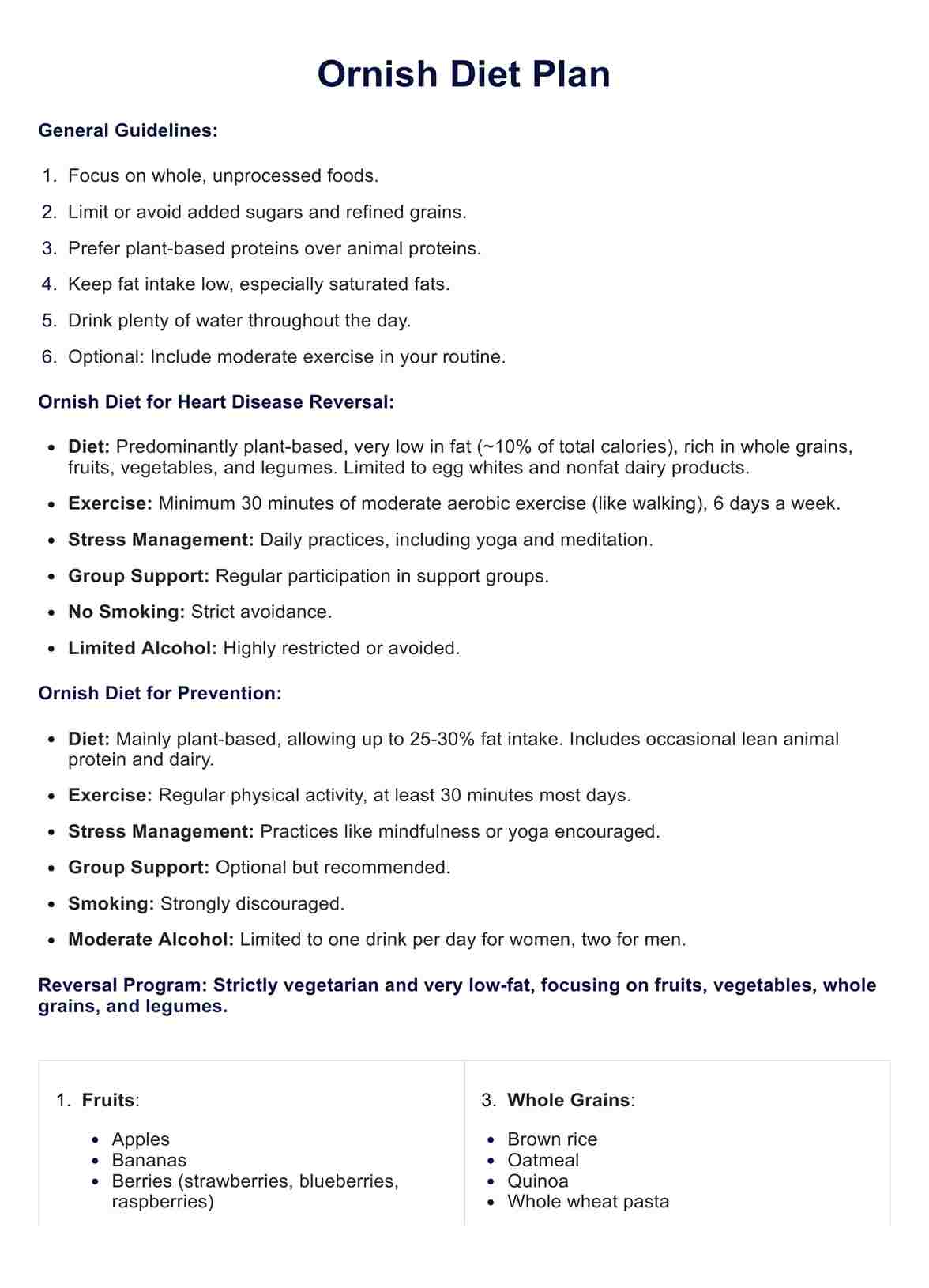The Ornish diet is a nutritional and lifestyle plan developed by Dr. Dean Ornish. It's primarily plant-based, emphasizing the consumption of whole grains, fruits, vegetables, and legumes while limiting the intake of fats, particularly saturated and trans fats.
The diet is known for its focus on heart health, but it also encompasses holistic lifestyle changes, including regular exercise, stress management techniques like meditation and yoga, and the importance of emotional support and community.












